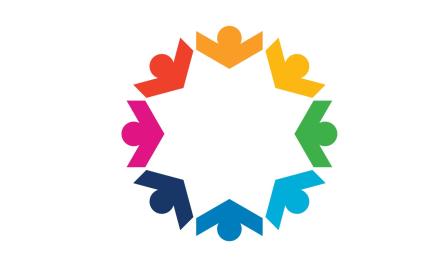-
Who we are
WHO WE AREThe International Organization for Migration (IOM) is part of the United Nations System as the leading inter-governmental organization promoting since 1951 humane and orderly migration for the benefit of all, with 175 member states and a presence in 171 countries.
-
Our Work
Our WorkAs the leading inter-governmental organization promoting since 1951 humane and orderly migration, IOM plays a key role to support the achievement of the 2030 Agenda through different areas of intervention that connect both humanitarian assistance and sustainable development.
What We Do
What We Do
Partnerships
Partnerships
- Where we work
-
Take Action
Take Action
Work with us
Work with us
Get involved
Get involved
- Data and Research
- 2030 Agenda
As decided by the New York Declaration, the process leading up to the Global Compact for Migration (GCM) was split into three phases: Consultation, Stocktaking and Negotiations.
- Phase I: April—November 2017: Consultations
-
Several global, regional and national thematic consultations and multi-stakeholder hearings (informal interactive consultation hearings for non-governmental actors, including the private sector) were held during this phase, with input from and participation of relevant stakeholders at global, regional, national and local levels.
- May 8 – 9 (Geneva): Thematic session 1 – human rights, social inclusion, cohesion, discrimination, including racism, xenophobia and intolerance.
- May 22 – 23 (New York): Thematic session 2 – addressing drivers of migration, incl. climate change, natural disasters & human-made crises, through protection and assistance, sustainable development, poverty eradication, conflict prevention and resolution.
- June 19 – 20 (Geneva): Thematic session 3 – international cooperation and governance of migration in all its dimensions, including at borders, transit, entry, return, readmission, integration and reintegration.
- July 24 – 25 (New York): Thematic session 4 – contributions of migrants and diasporas to development, including remittances and portability of earned benefits.
- September 4 – 5 (Vienna): Thematic session 5 – smuggling of migrants, trafficking in persons and slavery, including identification, protection and assistance.
- October 12 – 13 (Geneva): Thematic session 6 – irregular migration and regular pathways, including decent work, labor mobility, recognition of skill and qualifications.
For more information, including all documentation related to the thematic sessions, please visit https://refugeesmigrants.un.org/consultation-phase”
- May 8 – 9 (Geneva): Thematic session 1 – human rights, social inclusion, cohesion, discrimination, including racism, xenophobia and intolerance.
- Phase II: December 2017—January 2018: Stocktaking
-
The stocktaking phase began with a meeting in Puerto Vallarta, Mexico on 4 – 6 December 2017. The aim of the meeting was to pull together and analyze all relevant input received during the consultations phase. The outcomes of the stocktaking fed into a first draft (“zero draft”) of a global compact for migration prepared by the co-facilitators of the process (Switzerland and Mexico), which provides the basis for the third phase: intergovernmental negotiations.
For more information, including all documentation related to the Stocktaking Phase, please visit https://refugeesmigrants.un.org/stocktaking-phase.
- Phase III: February 2018—July 2018: Intergovernmental negotiations
-
The intergovernmental negotiations on the Global Compact for Migration were held at the United Nations Headquarters in New York from February to July 2018 on the following dates:
- 20 February 2018 and 22-23 February 2018
- 12-15 March 2018
- 3-6 April 2018
- 14-18 May 2018
- 4-8 June 2018
- 9-13 July 2018
For more information, including all documentation related to the Negotiations Phase, please visit https://refugeesmigrants.un.org/intergovernmental-negotiations
- Key Negotiations Documents
- IOM Key Documents
-
- IOM Thematic Papers
- IOM Activities in Support of the Global Compact for Migration
- Actionable Commitments
- Input to the UN Secretary General’s Report on the Global Compact for Safe, Orderly and Regular Migration
- Detailed Proposed Approach for Follow-up and Review
- Improving Data for Safe, Orderly and Regular Migration



